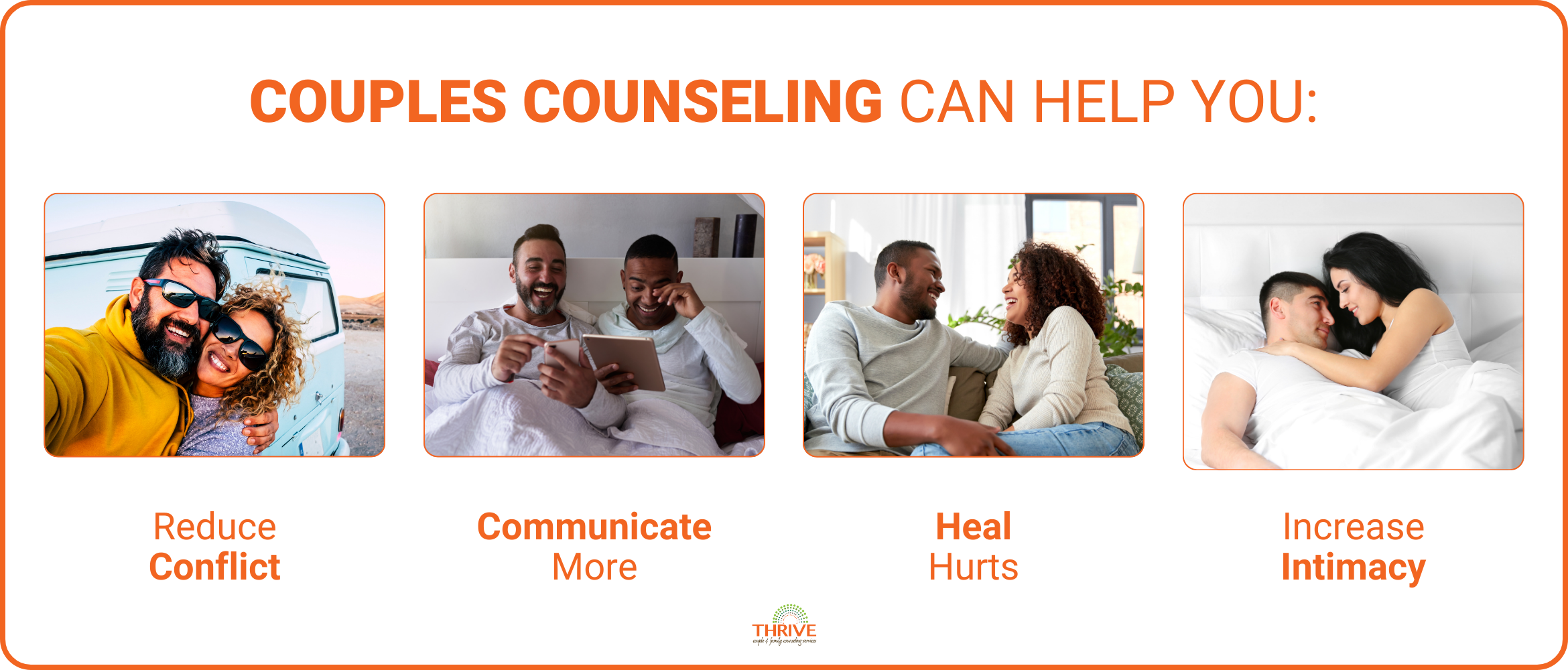This is such an important question, but not an easy one to answer.
We consider the following factors in considering how long it might take a couple to reach their goals.
Some of these are not changeable, and some you can do quite a bit to move things along positively and quickly.
Factors that can influence how long couples therapy will take:
The couple’s history: How long have problems been occurring? Have there been significant betrayals or losses of trust?
The couple’s communication: How often or willing are you to talk about things together when it’s calm, outside of arguments? How aware are you of what you share (and don’t share) about your thoughts and feelings? How aware are you of how you share your feelings and thoughts (tone, body language, word choice)?
The individual’s history: What were you taught about expression of feelings? Are there significant traumas you’ve experienced that affect how you feel in the world and in close relationships?
While you may have circumstances you cannot change (who your family was, any traumatic experiences), there is so much we can do to understand, heal and build compassion for ourselves and our partners.
Traumatic experiences can be healed, and one of the best places to do that is with the person you love. Couples counseling can help you share and heal together as a couple. You can become that safe haven and secure base for each other that your family may not have been.
The “Roll Up the Sleeves Factor”
Some couples want all the homework assignments and books to read that we can recommend. Those couples are comfortable and prioritize working on things outside of session.
Other couples find they don’t really want to read a book, find it hard to carve out time to talk about their relationship, or get easily triggered and stuck in arguments.
Wherever you are as a couple, we will meet you there. If you want guidance with how to “roll up your sleeves” as a couple, we will show you how to maximize your sessions and reach your goals as quickly as possible. If you need a little more help, a slower pace, and benefit from the structure and motivation that a couples therapy session provides, we will be right alongside you, fighting for your relationship.


